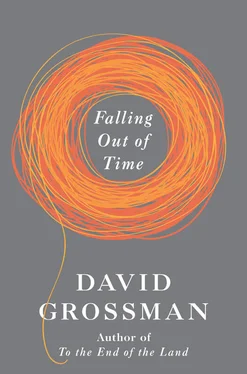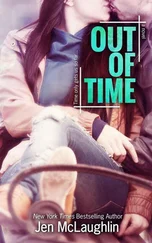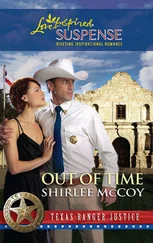his odor, too.
WOMAN:
His smells—
sweet, sharp,
sour.
His washed hair
his bathed flesh
the simple spices
of the body—
MAN:
The way he used to sweat after a game,
remember?
Burning with excitement—
WOMAN:
Oh, he had smells for every season:
the earthy aromas of autumn hikes,
rain evaporating from wool sweaters,
and when you worked the spring fields together,
odor from the sweat of your brows,
the vapors of working men, filled the house—
MAN:
But most of all I loved the summer,
with its notes of peaches
and plums,
their juices running down his cheeks—
WOMAN:
And when he came back
from a campfire with friends,
night and smoke
on his breath—
MAN:
Or when he returned
from the beach,
a salty tang
in his hair—
WOMAN:
On his skin.
The scent of his baby blanket,
the smell of his diapers
when he drank only breast milk,
then seemingly
one moment later—
MAN:
The sheets of a boy
in love.
WOMAN:
Sometimes, when we are
together, your sorrow
grips my sorrow,
my pain bleeds into yours,
and suddenly the echo of
his mended, whole body
comes from inside us,
and then one might briefly imagine—
he is here.
(pause)
I would go
to the end
of the world with you,
you know. But you are not
going to him, you are going
somewhere else, and there
I will not go, I cannot.
I will not.
It is easier to go
than to stay.
I have bitten my flesh
for five years
so as not to go, not
there,
there is
no there!
MAN:
There will be,
if we go
there.
TOWN CHRONICLER: She looks away from him. They are distant, as though he is no longer here, on this side. He takes a deep breath, inhaling the small kitchen and the entire house, and her — her face, her body. Then he straightens up. As he walks past, his hand rests briefly on her waist, barely touching. He leaves the house and shuts the door behind him.
And stops: the sky is low and black, the broad-chested night pushes him back to the house. He looks at the closed door. His feet hesitate, probing. He walks — strange — orbiting himself in a small circle. Slowly, carefully, again and again, one circle after another. His arms spread out, the circles grow wider, he walks around the small yard, and now he circles the house—
WALKING MAN:
Here I will fall
now I will fall—
I do not fall.
Now, here,
the heart
will stop—
It does not stop.
Here is shadow
and fog—
now,
now
I will fall—
TOWN CHRONICLER: The night air is damp and cool. Clouds roll over the big swamps in the east, covering the stub of moon. Again and again he circles the house, as if hoping his motion will rouse her and enthuse her.
WALKING MAN:
Your icy voice
ensnarls
my feet. How will I walk
without your warmth, without the light
of your eyes?
How will I walk
if you withhold
your grace?
TOWN CHRONICLER: His gaze always fixed on the shuttered blinds, he circles the house again and again, but gradually moves farther away. He opens up, spreads out, walking farther, farther, his circles growing larger and wider. He walks there — there is no there , of course there isn’t, but what if you go there? What if a man walks there?
WALKING MAN:
I am not alone, I am not
alone, I whisper
like an oath,
and his breath
through my mouth
clouds the mirror.
I am not alone,
with him I am
not alone—
TOWN CHRONICLER: He gradually encircles the whole village, then he does so again. He walks by houses, yards, wells, and fields, past barns and paddocks and woodpiles. Dogs bark at him and quickly retreat with a whimper, and he walks.
WALKING MAN:
I am not alone. With him
I am not one ,
I am alone
with him in all
my thickets, my labyrinths.
He pulses in me, lives
with me, one
with me, with him
I share the vast expanse his death
created in me—
and he surges
and he wanes with me,
unquiet
unquiet
roaming
embittering
redeeming
shackling
healing
purifying,
not letting go,
not letting go,
this
lonely
dead
child.
TOWN CHRONICLER: Night after night after night. Things are happening in your town, my lord, and I fear I will not have the time to record them all for you.
Right now, at midnight, at the old wharf by the lake, something stirs inside a skein of fishing nets. A head pokes out and glances around. A tiny, supple body pulls itself out of the skein and sits up breathlessly. It is a person, undoubtedly. Frightened eyes gleam white in the filthy face as they scan the hilltops surrounding the town. The gaping mouth turns to look, like a dark third eye.
Now I see: it is the net-mender. You may recall, Your Highness, that years ago, on one of your visits to the harbor, you enjoyed her sharp tongue when she argued with you over the needle tax you had levied, in your benevolence, at the time. A cheerful, curly-haired boy was tied to her chest in a brightly colored sling. He played a game of peekaboo with you, and you gave him a gold coin. I do not know what became of him. From time to time I see her roaming the streets near the harbor, grunting, muttering unintelligible words to herself, encumbered by a tangled web of fishing nets that makes one wonder whether there is a human being inside at all.
She suddenly leaps up as if snakebitten. Her hands rise and she points far away. She groans—
If you are awake, my lord, and would be so kind as to look out of your window, you, too, will see: a small luminance of sorts encircles the town. A man walks there, up and down the hills.
WALKING MAN:
One step,
another step, another
step,
walking and
walking to you.
I am
an unleashed question,
an open shout
My son
If only
I could
move
you
just
one
step.
TOWN CHRONICLER: And on the third night watch, in a side alley on the outskirts of town, in a little house with one room, a centaur sits at a table. That is what the townsfolk call him, Your Highness, and I promise to try to find out why very shortly. His massive head, adorned with snowy-white curls, droops onto his chest. His spectacles have slid down to the edge of his nose, and his snores shake the house. I glance right and left: no one. I rise up on my toes and peer inside. The room is dusky, but I can discern that it is overflowing: strange mounds and heaps that might be dirt or garbage, or piles of old furniture, surround the man and at times reach the ceiling. It is hard to see how he can move in this room.
A dirty blanket is spread out on the desk before him. A few empty beer bottles, pens, pencils, a school notebook, all scattered around. The notebook is open; its pages have thin blue lines. As best I can tell from here, they are all empty.
“Scram before I wring your balls,” the centaur growls without opening his eyes, and I flee for my life.
Only when I reach the fence outside the home of the woman from whom I have exiled myself does my heart recover.
TOWN CHRONICLER’S WIFE:
The passing time
is painful. I have lost
the art
of moving simply,
naturally, within it.
I am swept back
against its flow. Angry, vindictive,
it pierces me
all the time, all the
time
with its
Читать дальше











